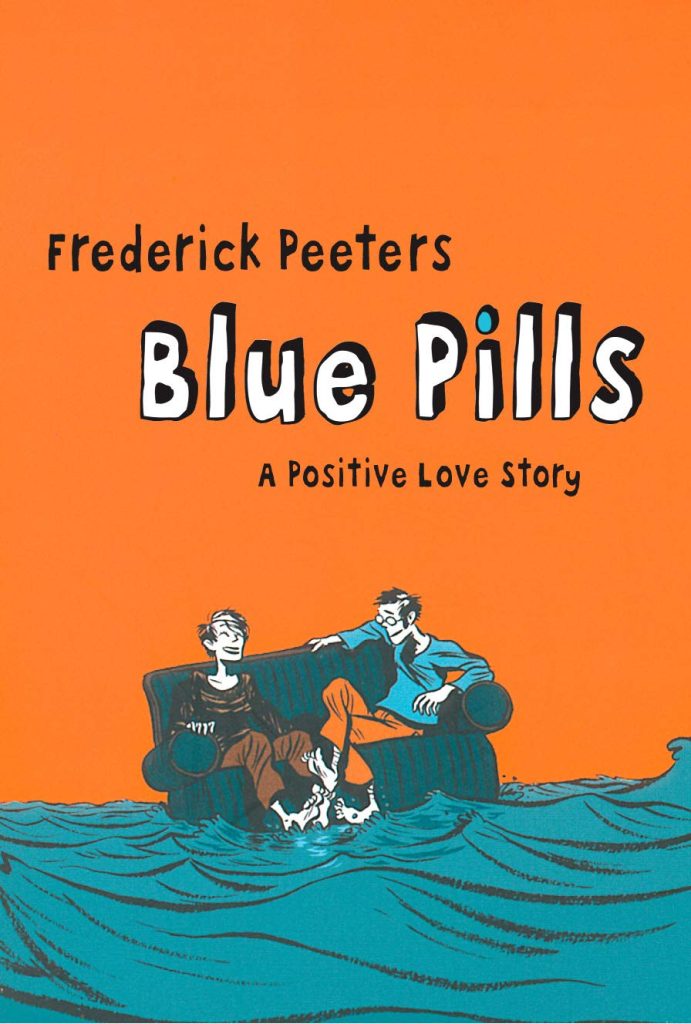Review by Ian Keogh
When Frederik Peeters first notices Cati she’s in a swimming pool in a wet t-shirt clasping a glass of champagne. It’s the type of image liable to embed itself as a snapshot memory. Their meetings are brief over the next decade until the right time and the right circumstances coincide and a relationship develops. Shortly after that Cati reveals she’s HIV positive, as is her young son.
Because medicine has developed enabling people with AIDS to have greater control over their lives, the condition doesn’t have the profile it did during the late 20th century, but it’s still a rare person with the disease who lives a long natural lifespan. Coping with it requires disciplined hygiene and health routines. Now consider that applied to a child born as HIV positive. The blue pills of the title refer to what Cati’s son, presumably never named for privacy reasons, has to take to maintain his health.
There’s an engaging honesty about the way Peeters presents himself, which isn’t always positive. He admits in the early days that how well he connected with Cati’s son depended on their respective moods, and there’s a moment when a condom breaks that brings home to him all the natural fears women might experience in the same circumstances. While there’s never any doubt about the relationship continuing after Cati’s revelation, Peeters discloses discussions about whether to tell his parents, and reactions from friends. A key sequence defining the relationship with Cati is when she asks him why he loves her. It’s charmingly witty in the way he attempts to define the sometimes indefinable and precedes the breaking condom, which leads to one great doctor’s consultation.
Peeters has much to contemplate, and while his connection to Cati never wavers, he’s a contemplative individual and thoughts stray. It leads to the weakest section of Blue Pills, an indulgent eighteen pages of self-analysis via a conversation with a mammoth. What does it say about Peeters that a metaphorical elephant is also key to subsequent project Pachyderme? Without diminishing the natural concerns anyone would have about loved ones somehow restricted in life, the impression given in Blue Pills is that Peeters over-thinks everything. His personal dominance means subjects that might have been explored are left untouched. While access all areas isn’t necessary, all too often Peeters voices his impression of Cati’s feelings, and both she and her son fade the longer the story continues.
Presenting his thoughts in pen and ink may have begun as an attempt to being wider understanding, but it finishes with a narrowed focus, and that’s disappointing.





